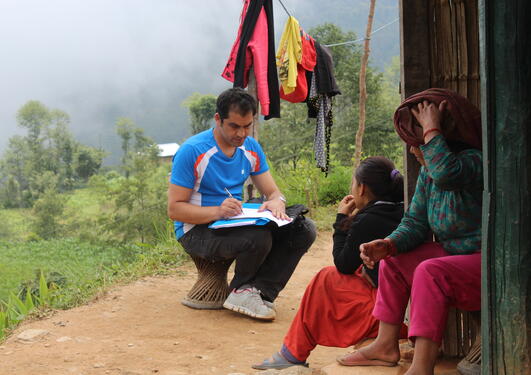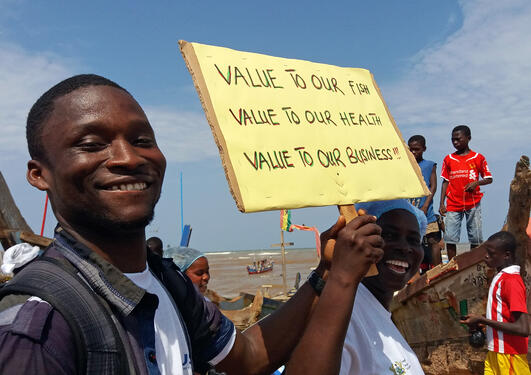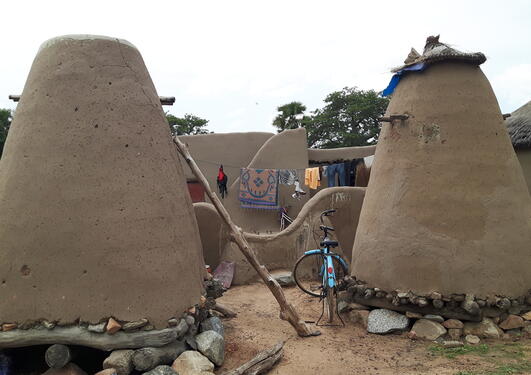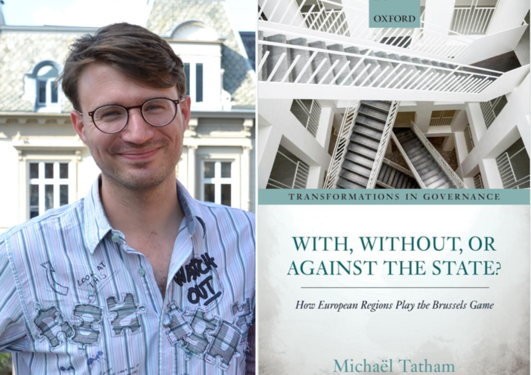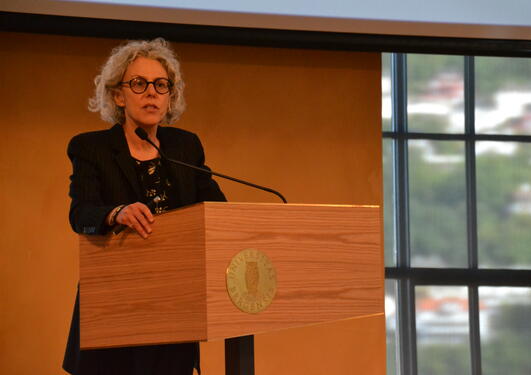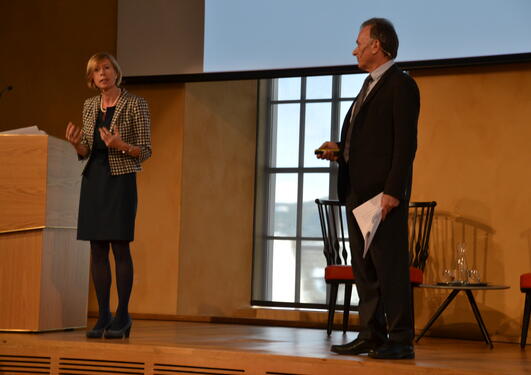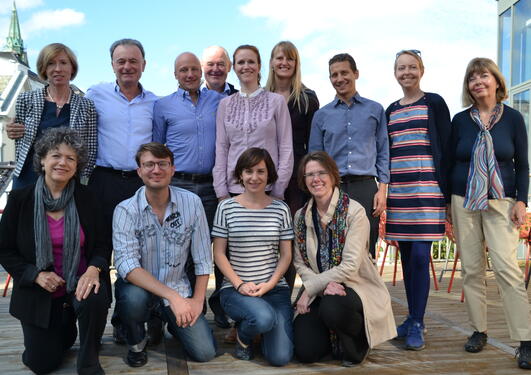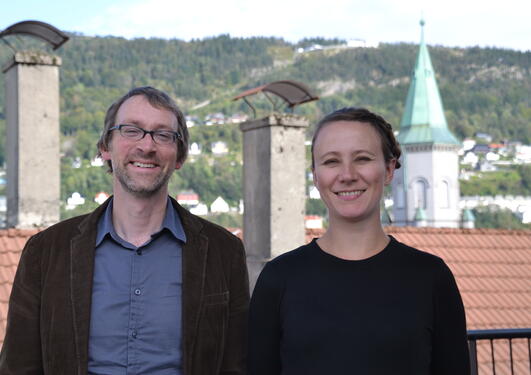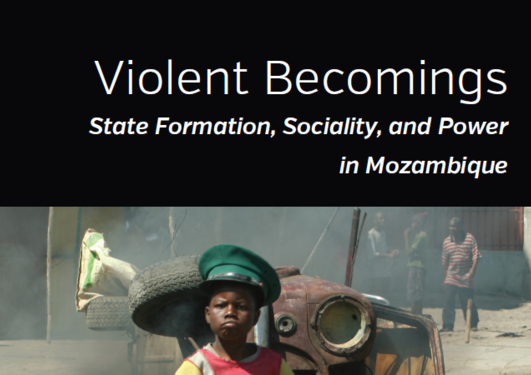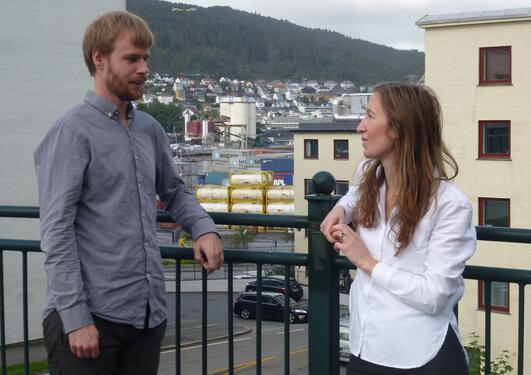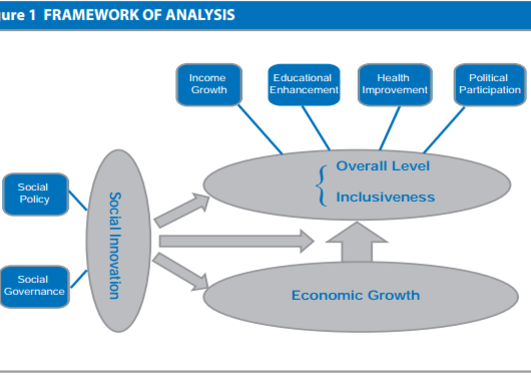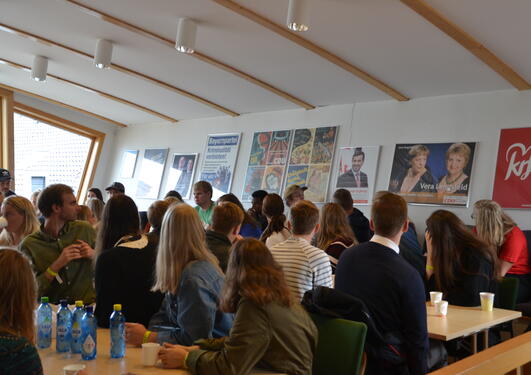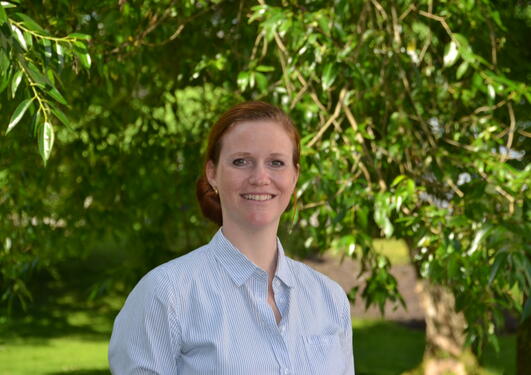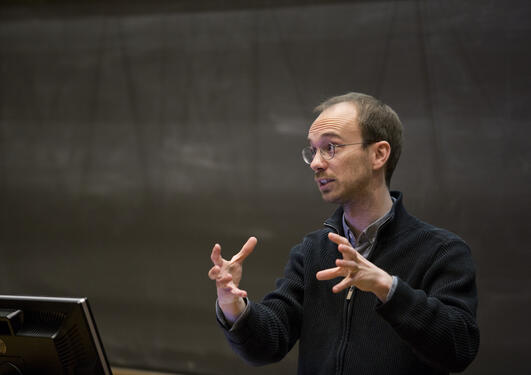News archive for Faculty of Social Sciences
My master project is about agricultural innovation in Arun Valley, Nepal: innovation capacity in response to climatic and non-climatic uncertainties.
My master prosject is addressing fisheries governance and the concerns of fisher folks with regards to oil and gas extraction activities in Axim, Ghana.
My master project study focuses on food insecurity in smallholder farmers household during the Lean season in the Guinea Savanna zone of Ghana with Navrongo as the study area.
In his new book, Professor Michaël Tatham explores how states and their sub-state regions cooperate (and sometimes clash) in the EU
One of the world’s leading judicial scholars has joined the University of Bergen as a visiting professor.
Marks and Hooghe built their lecture on Rokkan’s profound analysis of peripheral community. They discussed how distance, difference and dependence of territorial communities endure within a state.
- Understanding Representational and Policy-Making Challenges in Multi-Jurisdictional Polities.
Elin Monstad and Aaron Spitzer are newly appointed PhD candidates at the Department of Comparative Politics.
Local indigenous groups in Alberta, Canada embrace change as a survival strategy in the oil sands areas characterized by instability and uncertainty in the wake of the economic recession and devastating natural disasters.
The latest edition of the Journal Civil Wars is a special issue edited by Gyda Marås Sindre and Johanna Söderström.
Associate Professor Bjørn Enge Bertelsen published a new book.
In August two new PhD-students started working at SpaceLab: Jakob Grandin and Kristin Edith Abrahamsen Kjærås.
Post doctor Michelle MacCarthy has published a new book.
Professor Stein Kuhnle is among the chief editors of the China National Human Development Report 2016: Social Innovation for Inclusive Human Development.
On Friday August 19th, the stage was set for "fagdag" at the Department of Comparative Politics, as part of semester start week.
Yvette Peters is trying to strengthen democracy by studying political inequality and representation. She likes the idea that her work is relevant.
The Green Economy Network with the editors Andrew Jones, Patrik Ström, Brita Hermelin and Grete Rusten launches an international book about role of services in the Greening of the Economy.
Post doctor Teije Hidde Donker says his research and course is about a “hot topic” that also relates to the debate on terrorism and the threat of radicalism in Europe and Norway.
Pages
- January 2026 (3)
- December 2025 (8)
- November 2025 (3)
- October 2025 (2)
- September 2025 (2)
- August 2025 (6)
- July 2025 (1)
- June 2025 (3)
- May 2025 (1)
- April 2025 (11)
- February 2025 (11)
- January 2025 (6)
- December 2024 (3)
- November 2024 (9)
- October 2024 (8)
- September 2024 (6)
- August 2024 (7)
- July 2024 (3)
- June 2024 (7)
- May 2024 (8)
- April 2024 (8)
- March 2024 (6)
- February 2024 (8)
- January 2024 (12)
- December 2023 (15)
- November 2023 (10)
- October 2023 (16)
- September 2023 (8)
- August 2023 (8)
- June 2023 (11)
- May 2023 (17)
- April 2023 (10)
- March 2023 (8)
- February 2023 (9)
- January 2023 (10)
- December 2022 (3)
- November 2022 (7)
- October 2022 (10)
- September 2022 (6)
- August 2022 (5)
- July 2022 (2)
- June 2022 (2)
- May 2022 (7)
- April 2022 (2)
- March 2022 (11)
- February 2022 (5)
- January 2022 (10)
- December 2021 (9)
- November 2021 (4)
- October 2021 (6)
- September 2021 (9)
- August 2021 (6)
- July 2021 (1)
- June 2021 (8)
- May 2021 (7)
- April 2021 (4)
- March 2021 (2)
- February 2021 (5)
- January 2021 (6)
- December 2020 (8)
- November 2020 (2)
- October 2020 (3)
- September 2020 (3)
- August 2020 (2)
- June 2020 (5)
- May 2020 (7)
- April 2020 (2)
- March 2020 (5)
- February 2020 (4)
- January 2020 (5)
- December 2019 (7)
- November 2019 (9)
- October 2019 (9)
- September 2019 (3)
- August 2019 (1)
- July 2019 (1)
- June 2019 (3)
- May 2019 (6)
- April 2019 (4)
- March 2019 (4)
- February 2019 (7)
- January 2019 (3)
- December 2018 (6)
- November 2018 (8)
- October 2018 (9)
- September 2018 (3)
- August 2018 (5)
- July 2018 (8)
- June 2018 (6)
- May 2018 (13)
- April 2018 (8)
- March 2018 (5)
- February 2018 (4)
- January 2018 (16)
- December 2017 (7)
- November 2017 (10)
- October 2017 (11)
- September 2017 (12)
- August 2017 (7)
- July 2017 (1)
- June 2017 (17)
- May 2017 (5)
- April 2017 (12)
- March 2017 (8)
- February 2017 (5)
- January 2017 (13)
- December 2016 (7)
- November 2016 (5)
- October 2016 (9)
- September 2016 (9)
- August 2016 (4)
- July 2016 (6)
- June 2016 (13)
- May 2016 (2)
- April 2016 (4)
- March 2016 (2)
- February 2016 (3)
- January 2016 (4)
- December 2015 (4)
- November 2015 (3)
- October 2015 (10)
- September 2015 (7)
- August 2015 (5)
- June 2015 (7)
- May 2015 (7)
- April 2015 (4)
- March 2015 (1)
- February 2015 (7)
- January 2015 (5)
- December 2014 (12)
- November 2014 (15)
- October 2014 (11)
- September 2014 (16)
- August 2014 (9)
- June 2014 (4)
- May 2014 (7)
- April 2014 (10)
- March 2014 (6)
- February 2014 (3)
- January 2014 (2)
- December 2013 (3)
- November 2013 (1)
- October 2013 (8)
- September 2013 (7)
- August 2013 (1)
- June 2013 (3)
- May 2013 (5)
- April 2013 (1)
- March 2013 (1)
- January 2013 (2)
- December 2012 (4)
- October 2012 (4)
- September 2012 (1)
- August 2012 (3)
- June 2012 (1)
- May 2012 (1)
- April 2012 (5)
- March 2012 (1)
- February 2012 (1)
- January 2012 (1)
- November 2011 (1)
- October 2011 (3)
- September 2011 (3)
- August 2011 (5)
- May 2011 (1)
- January 2011 (2)
- November 2010 (2)
- October 2010 (1)
- September 2010 (2)
- August 2010 (1)
- June 2010 (1)
- April 2010 (1)
- March 2010 (1)
- February 2010 (1)
- December 2009 (3)
- November 2009 (3)
- October 2009 (4)
- September 2009 (1)
- March 2009 (2)
- February 2009 (4)
